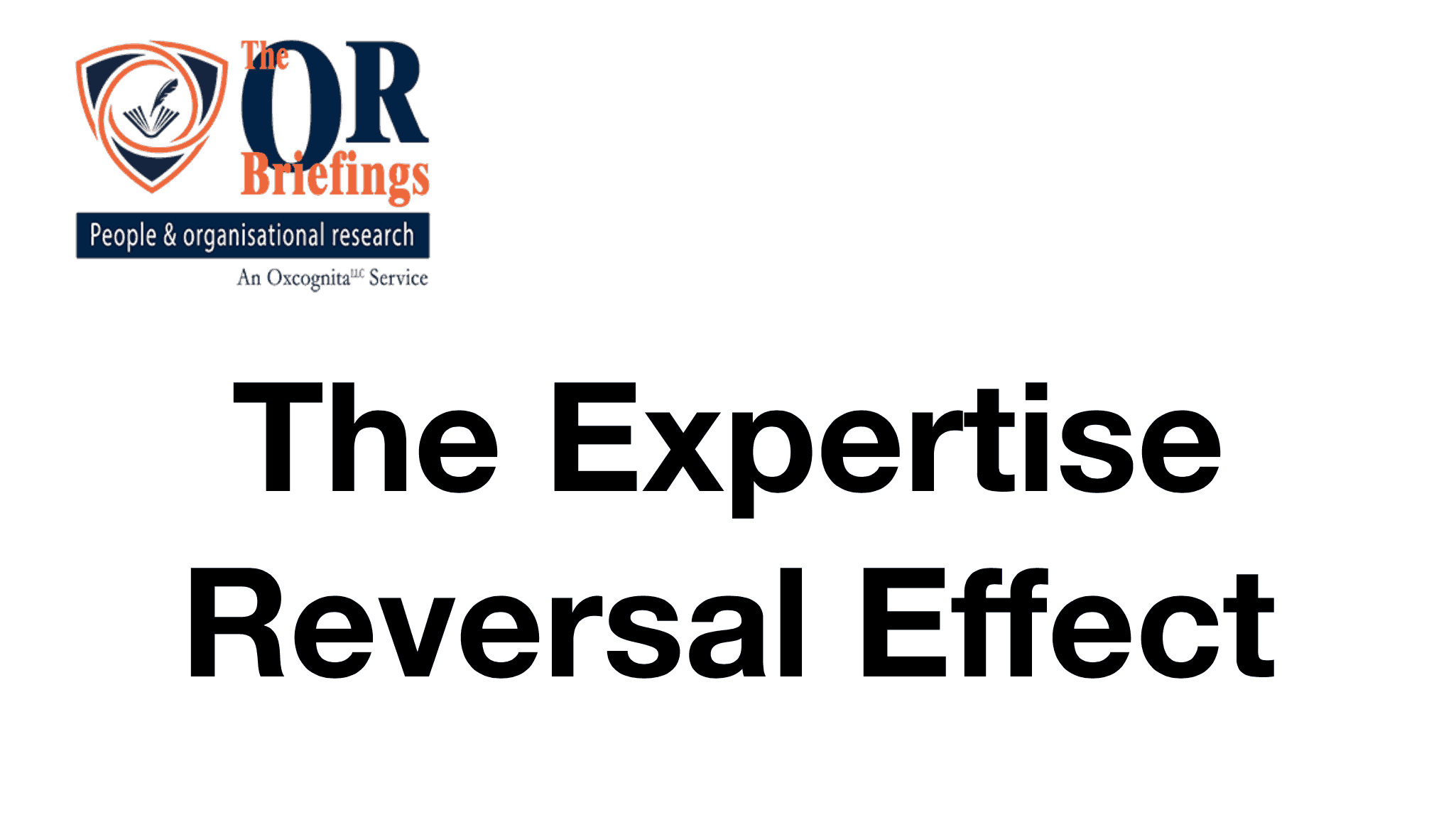- in Blog , Research by David Wilkinson
- |
- 1 comments
What is the expertise reversal effect?

The expertise reversal effect refers to how novices and experts learn. When novices are learning they don’t have a mental framework or schema about the subject. In other words they don’t understand how everything fits together and relates to each other, or how to critically think about the topic. Experts on the other hand do.
The expertise reversal effect comes from research which shows that novices need step by step instruction, teachers and simple learning tasks with little variability until they know how to think about the topic.
Experts on the other hand learn best from having little teaching/instruction and learning tasks that are much more variable. In other words they reverse the normal learning processes.
References
Kalyuga, S. (2009). The expertise reversal effect. In Managing Cognitive Load in Adaptive Multimedia Learning (pp. 58-80). IGI Global.
Kalyuga, S. (2007). Expertise reversal effect and its implications for learner-tailored instruction. Educational psychology review, 19(4), 509-539.
Spanjers, I. A., Wouters, P., Van Gog, T., & Van Merrienboer, J. J. (2011). An expertise reversal effect of segmentation in learning from animated worked-out examples. Computers in Human Behavior, 27(1), 46-52.
Likourezos, V., Kalyuga, S., & Sweller, J. (2019). The variability effect: when instructional variability is advantageous. Educational Psychology Review, 31(2), 479-497.
Be impressively well informed

Get the very latest research intelligence briefings, video research briefings, infographics and more sent direct to you as they are published
Be the most impressively well-informed and up-to-date person around...

1bookmarks